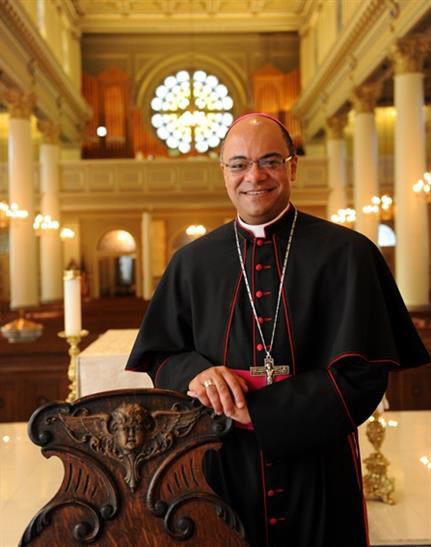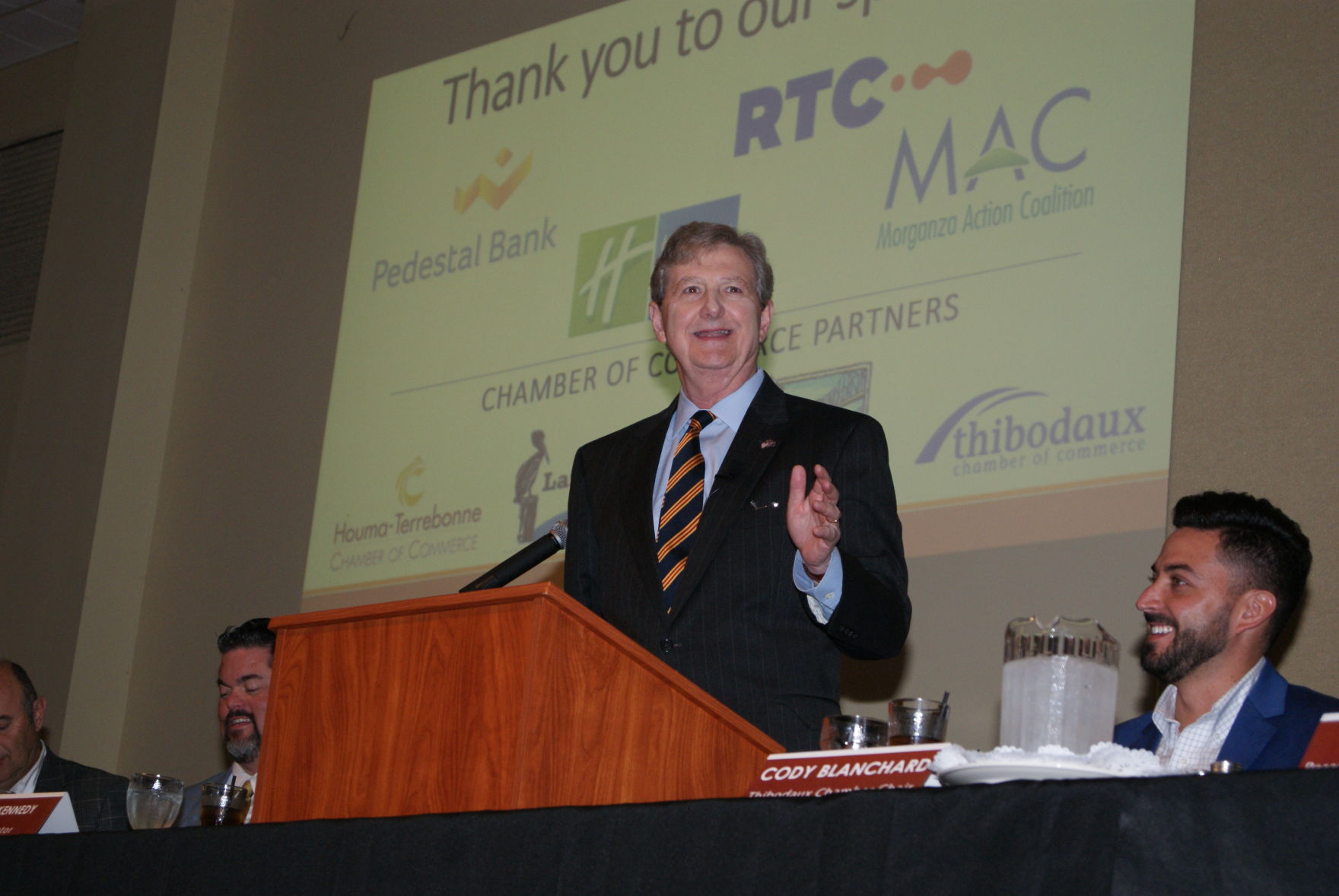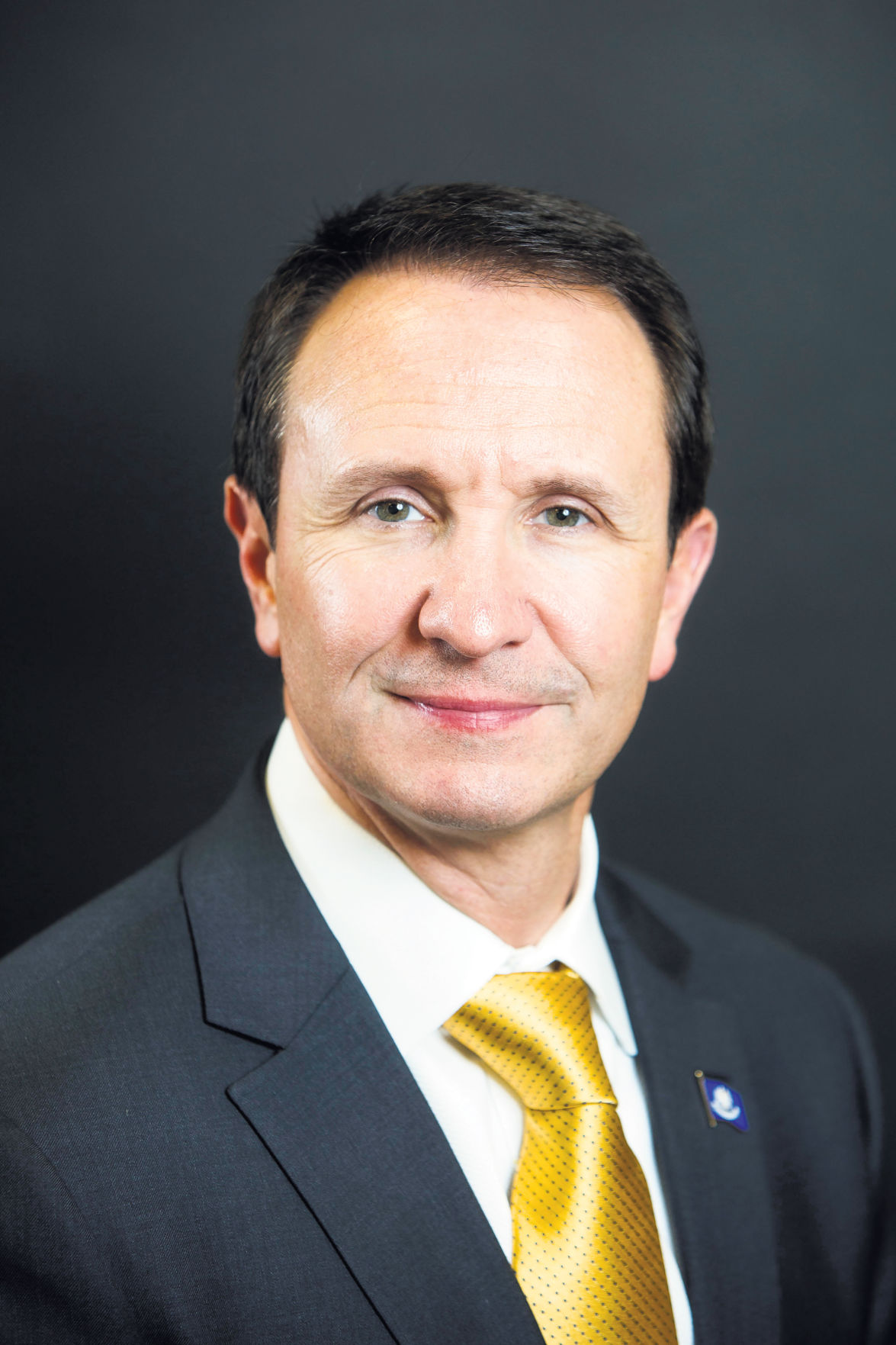
Bishop offers abuse reconciliation message
August 15, 2018
U.S. Senator Meets With Local Business Leaders
August 15, 2018A federal judge tasked with crafting a remedy to a voting rights law violation in Terrebonne Parish will appoint an expert to guide the process.
Attorneys for Louisiana’s governor and attorney general as well as those from the NAACP Legal Defense and Education Fund, who represent the Terrebonne Branch of the NAACP, have submitted names to U.S. District Judge Shelly Dick, who may choose among those or come up with her own expert.
Both sides earlier this month agreed to appointment of a Special Master, someone generally with special knowledge or experience who can either aid the court in choosing one of two proposals already submitted by the plaintiffs, or in creating a totally new election map that comports to U.S. Voting Rights Act requirements.
A hearing is scheduled for Jan. 22 and 23 in Dick’s Baton Rouge courtroom, at which attorneys may voice support or objection to the chosen plan in advance of a final ruling by the judge.
All five of Terrebonne’s district court judges are elected by the entire population of Terrebonne, a system called at-large voting. The argument presented during an 8-day trial last year by attorneys for the NAACP was that the method denies black voters in Terrebonne the potential to elect a candidate of their choosing, this violating federal law.
In response to the court’s request for plans to cure the violation it found, NAACP lawyers submitted two plans containing five subdistricts, with a majority of black voters in one district within each plan. The state, invited to provide its own proposal after the violation was determined by the late U.S, District Judge James Brady, has not done so. During the last legislative session there was discussion among some members of the Terrebonne delegation concerning a possible bill creating a minority subdistrict, but no such bill materialized.
“I see this as a good thing for our case because we are still moving forward towards a remedy,” Terrebonne NAACP President Jerome Boykin said.
“For the court to order a special master it clearly shows the courts are trying to correct the violation that was found in the 32nd Judicial District, Boykin said. “The local legislative delegation refused to come up with a remedy, so they left the court no other choice but to come up with a remedy.”
EXPERT RESUMES
A special master is described in legal dictionaries as, generally, an authority on a subject appointed by a judge to ensure that the court’s orders are followed. They are appointed in some complex cases where their knowledge and experience is deemed helpful to the court.
Leah Aden, lead counsel for the NAACP, along with other members of that team, made two recommendations and the state made two as well.
Patricia Lowrey-Dufour, an analyst for the Louisiana Legislature with extensive redistricting experience, and Dr. Bernard Grofman, a political science scholar at the University of California Irvine campus. Grofman has published extensively on redistricting topics and has served as a Special Master in other cases.
The state has suggested Dr. Douglas Johnson, CEO of the National Demographics Corp. in Glendale, Ca. who has advised on redistricting plans for state and local governments across the country, and been an expert or consulting witness in numerous cases, primarily on behalf of local government interests.
Dr. M.V. “Trey” Hood III is a University of Georgia political scientists whose extensive publications relate to elections laws and their history, redistricting and southern politics. He has also served as an expert witness in voting rights cases, with the available record indicating that he too has testified on behalf of defendant jurisdictions.
As requested by the judge, each side presented last week their desires for how the remedy portion of the case should be handled.
BUILDING A PROCESS
Attorney General Jeff Landry wants the use of a Special Master limited to study by the court of the two plans already presented during the litigation, each crafted by the plaintiffs in the case.
“A new map, written at the eleventh hour by an appointed Special Master, will work substantial injustice on the parties who have briefed a single set of maps for the entirety of this proceeding,” attorneys for Landry write in their most recent brief.
The Attorney General also reiterated his objection to the maps already in play, arguing in the filing that they are racial gerrymanders.
Landry’s preferred roadmap for the case moving forward is that the NAACP present its maps already in evidence, at the January hearing. The defendant attorney general and governor will then provide objections to those plans with their own expert presentations. The Special Master, the plaintiffs maintain, should then submit a report within 30 days, moving the case into February 2019. They also seek 30 days for comments or objections.
The state then wants the court to dismiss the case altogether.
On the NAACP’s behalf attorneys appear to seek fewer delays in the process, recommending that briefs from both sides be filed on the plus or minus of what map the court may choose. The scheduled hearing should include any expert testimony that the court deems appropriate before a final order is entered.
The NAACP says this process would ensure that any appeals resulting from the judge’s ruling could be completed prior to the 2020 judicial elections in Terrebonne.
APPEALS ARE LIKELY
The U.S. Fifth Circuit Court of Appeals was already petitioned once by the state, in an early effort to have Judge Brady’s 2017 ruling reconsidered. The appeals court refused. The state has already indicated once Judge Dick orders her remedy an appeal would be sought.
A private lawyer under contract to the attorney general, Jason Torchinsky, is a partner in the Virginia firm Holtzman Vogel Josefiak Torchinsky, and is leading the state’s effort. His firm specializes in campaign finance, election law, lobbying disclosure and issue advocacy. They have been strongly identified with Republican interests over the years. State officials have not yet disclosed how much Torchinsky and other private attorneys fighting Brady’s ruling are costing taxpayers. If they appeal any decision by Dick, the appeals court, according to its rules and practices, would likely not hear the facts of the case. Rather, they would be likely limited to rulings on any error by judges that they detect in the judgment or the remedy.
The NAACP Legal Defense Fund has litigated many voting rights cases throughout the country and is privately funded. Like Torchinsky and his associates, LDF attorneys have extensive appellate experience.
Interviews and study of filings indicate that a final goal for the state would be a hearing in front of the highest court in the nation, if the Fifth Circuit does not provide the relief they seek.
That would only occur if the Supreme Court desired to hear the matter, there would be no appeal of right.
If the high court did hear the case, however, an opportunity would exist for the state’s attorneys to try and force an examination of the Voting Rights Act overall, and for the NAACP attorneys to defend against such an attempt, interviews with legal experts suggest.












